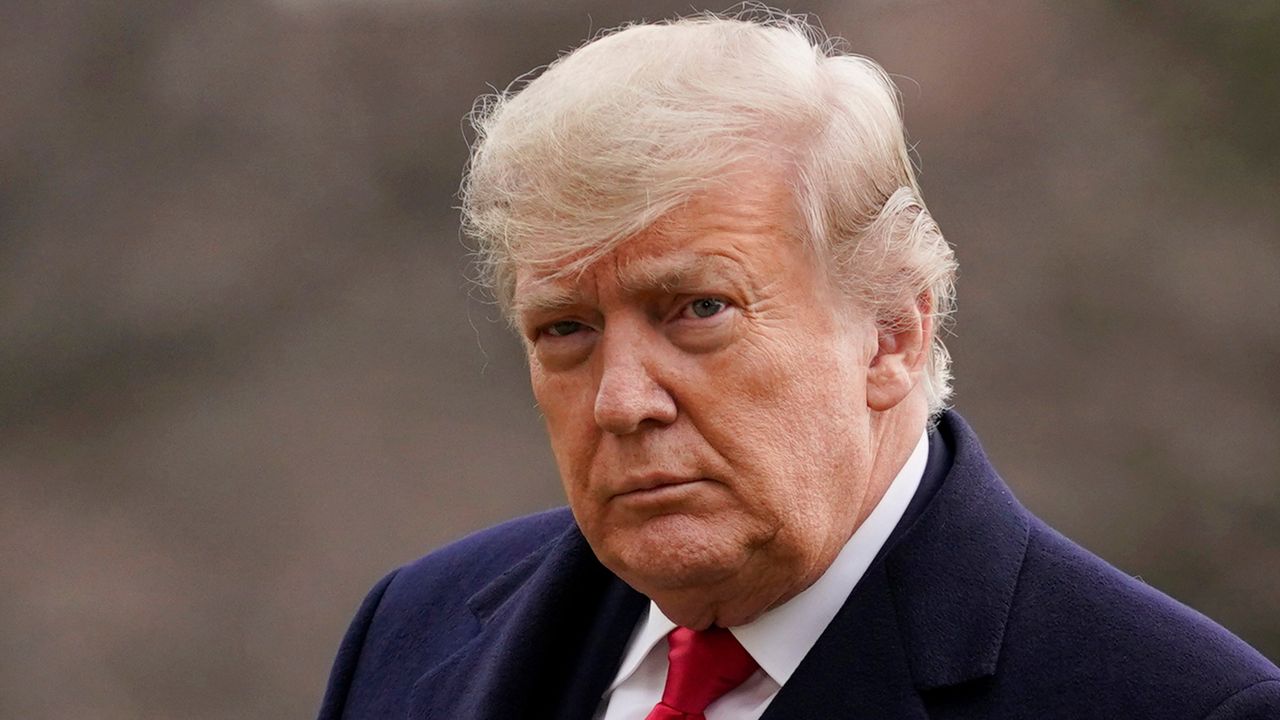A House committee is investigating whether former President Donald Trump violated the Presidential Records Act, after boxes of presidential records were discovered at his Florida estate and a news report surfaced of him destroying documents while in office.
What You Need To Know
- A House committee is investigating whether former President Donald Trump violated the Presidential Records Act, after boxes of presidential records were discovered at his Florida estate and a news report surfaced of him destroying documents in office
- The Washington Post also reported Wednesday that the National Archives has asked the Justice Department to investigate Trump’s handling of White House records
- And according to a forthcoming book by The New York Times’ Maggie Haberman, clumps of wadded-up paper were periodically found clogging up Trump’s plumbing in the White House
- Trump said in a statement that following “collaborative and respectful discussions,” the National Archives arranged for the transport from Mar-a-Lago "of boxes that contained Presidential Records in compliance with the Presidential Records Act"; he also denied flushing any documents
The Washington Post also reported Wednesday that the National Archives has asked the Justice Department to investigate Trump’s handling of White House records. And according to a forthcoming book by The New York Times’ Maggie Haberman, clumps of wadded-up paper were periodically found clogging Trump’s plumbing in the White House.
Trump on Thursday denied flushing any documents down the toilet.
House Oversight Committee Chairwoman Carolyn Maloney said in a statement Thursday that she was “deeply concerned that these records were not provided to the National Archives and Records Administration promptly at the end of the Trump administration and they appear to have been removed from the White House.”
Maloney, D-N.Y., wrote a letter to the archivist, David Ferriero, seeking information on 15 boxes of records the National Archives recovered from Trump at his Mar-a-Lago resort, in Palm Beach, Florida.
The Presidential Records Act mandates that records made by a sitting president and his staff are preserved in the archives, and an outgoing leader is responsible for turning over documents to the National Archives at the end of the term.
The Oversight Committee is seeking communications between the National Archives and Trump's aides about the missing boxes and information on what they may have contained. Maloney is asking for the information by the end of next week.
Records are central to any presidency, but Trump’s in particular have been at the center of an investigation by another House committee that's investigating the violent Jan. 6, 2021, insurrection at the U.S. Capitol, which sought to stop the certification of the 2020 presidential election, won by Democrat Joe Biden. Trump, a Republican, tried and failed to withhold White House documents in a dispute that rose to the U.S. Supreme Court.
The former president said in a statement that following “collaborative and respectful discussions,” the National Archives arranged for the transport from Mar-a-Lago "of boxes that contained Presidential Records in compliance with the Presidential Records Act.” The statement said the records will one day become part of the Donald J. Trump Presidential Library.
Trump said he was told he was “under no obligation to give this material based on various legal rulings that have been made over the years,” but he did not say who told him that.
There are also concerns that Trump was destroying records before he left office, and the House oversight panel wrote to the archivist in December 2020, as Trump's term was winding down, about those concerns.
The Washington Post reported recently that Trump “tore up” data that was both “sensitive and mundane" and that the archivist has referred the matter to the Justice Department to investigate whether Trump violated the Records Act. The Justice Department did not comment. A referral for potential criminal prosecution from a federal agency or from Congress does not mean that the Justice Department is likely to bring charges or that it will even investigate the matter.
The National Archives, in its own statements earlier this week, acknowledged that Trump representatives had been cooperating with it and had located records “that had not been transferred to the National Archives at the end of the Trump administration.” The agency arranged for the documents to be transported to Washington, D.C., and did not travel to Florida.
The archivist's office said the former president’s representatives are continuing to search for additional records that belong to the archives.
“Whether through the creation of adequate and proper documentation, sound records management practices, the preservation of records, or the timely transfer of them to the National Archives at the end of an Administration, there should be no question as to need for both diligence and vigilance," Ferriero said. "Records matter.”
Haberman says that while working on her book, “Confidence Man: The Making of Donald Trump and the Breaking of America,” due out in October, she learned the staff in the White House residence would periodically find the toilet clogged.
“The engineer would have to come and fix it, and what the engineer would find would be wads of clumped-up, wet, printed paper, meaning it was not toilet paper,” Haberman told CNN on Thursday.
“This was either notes or some other piece of paper that they believe that he had thrown down the toilet,” she added. “What it could be … could be anybody's guess. It could be Post-Its, it could be notes he wrote to himself, it could be other things. We don't know. But it certainly does add … another dimension to what we know about how he handled material in the White House.”
Haberman said the situation “raised questions among staff.”
In his statement, Trump said, “(A)nother fake story, that I flushed papers and documents down a White House toilet, is categorically untrue and simply made up by a reporter in order to get publicity for a mostly fictitious book.”



